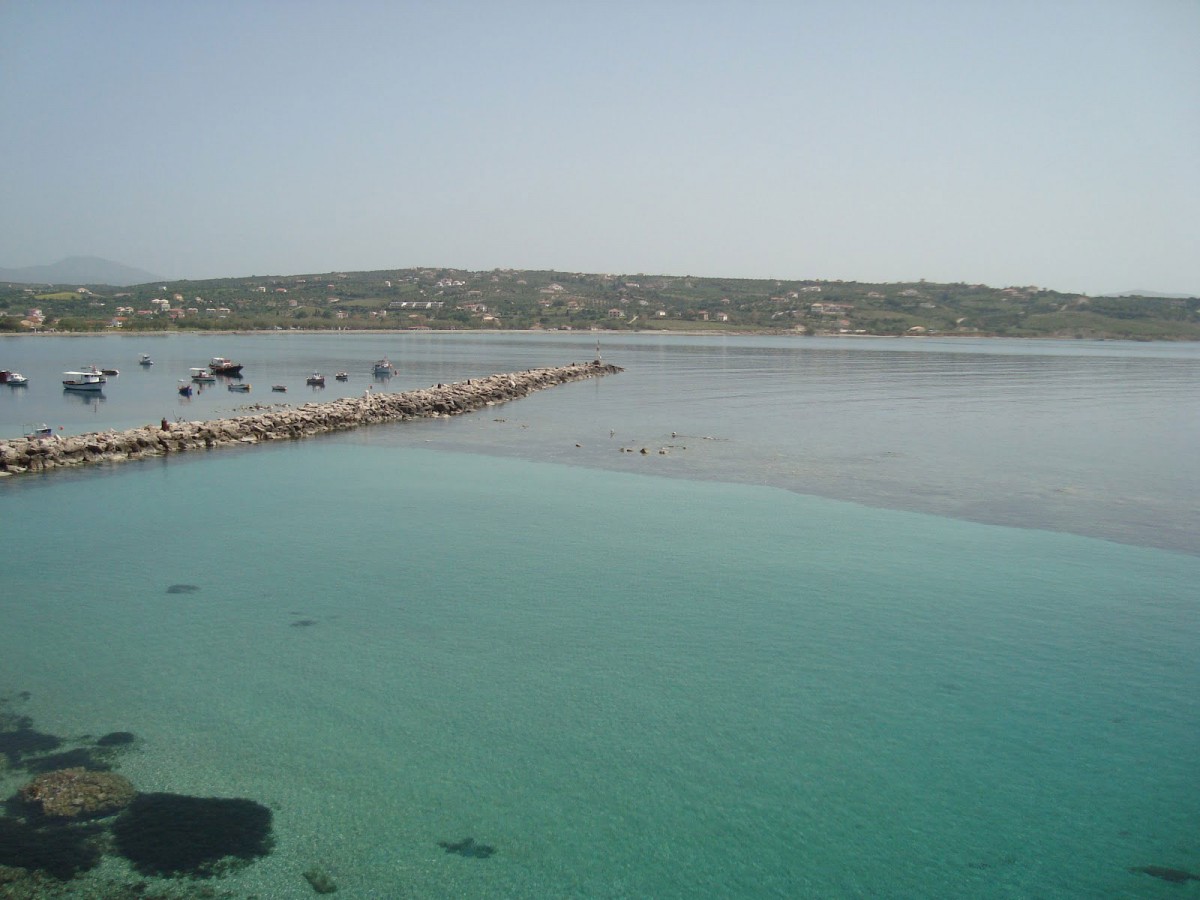Roman ring depicting cupid to be put on display
A 1,700-year-old Roman gold ring with a stone bearing an engraving of Cupid found in a village in the UK will be put on display.
Extremely well preserved Egyptian sarcophagus found
A sarcophagus of a 22nd dynasty nobleman has been unearthed around the tomb of Amenhotep in El-Assassif necropolis on Luxor's west Bank.
Unknown ancient Greek city found on Pindos mountain range
Archaeologists on Pindos mountain range, northern Greece, have discovered an ancient unknown city at an altitude of 1,200 meters.
Pafos Agora Project: expanded excavation
This year, excavations of the Pafos Agora comprised non-invasive (geophysical) methods in order to investigate the economic infrastructure of ancient Pafos.
Glimpses into an archosaur’s nest
Extinct archosaurs' eggshell porosity may be used as a proxy for predicting covered or exposed nest types, according to a new study.
City wall unearthed in Tal al-Dabaa
A team of experts from the Austrian Archaeological Institute has unearthed a giant fence in Tal al-Dabaa in the Sharqiya province, Egypt.
Tapestries of Louis XIV at the Getty
With rare loans from the French state, this exhibition presents a selection of monumental tapestries that evoke the brilliance of the Sun King's court.
Paleolithic elephant butchering site found in Greece
A new Lower Paleolithic elephant butchering site, Marathousa 1, has been discovered in Megalopolis, Greece.
Biologists trace how human innovation impacts tool evolution
Professor Marcus Feldman's lab has devised a computer model that could help solve a long-standing mystery over why the introduction of new tools in prehistoric societies sometimes comes in periodic bursts.
Human nature’s dark side helped us spread across the world
New research suggests that betrayals of trust were the missing link in understanding the rapid spread of our own species around the world.
DNA Tracks Adaptations in Europe’s First Farmers
The introduction of agriculture into Europe about 8,500 years ago changed the way people lived right down to their DNA.
Prehistoric man in the Galilee preferred legumes
Inhabitants' diet in Neolithic Galilee consisted mainly of fava beans, as well as lentils, various types of peas and chickpeas.
Loss of mastodons aided domestication of pumpkins, squash
If Pleistocene megafauna --mastodons, mammoths, giant sloths and others-- had not become extinct, humans might not be eating pumpkin pie and squash for the holidays, according to an international team of anthropologists.
Getting under the skin of a medieval mystery
A simple PVC eraser has helped an international team of scientists led by bioarchaeologists at the University of York to resolve the mystery surrounding the tissue-thin parchment used by medieval scribes to produce the first pocket Bibles.
Iran gains membership at ICCROM
Iran got a membership at the International Centre for the Study of the Preservation and Restoration of Cultural Property (ICCROM).
Syphilis widespread in Central Europe even before Columbus’ voyage to America
Congenital syphilis, which is passed from mother to child, has been detected in human skeletal remains from among the 9,000 burials in the cathedral square of St. Pölten, Austria.
Medieval skeleton of burnt teenage girl found in Italy
Archaeologists in Italy have uncovered a Medieval skeleton of a teenage girl, burnt and thrown in a pit, as was the practice with witches at the time.
Large hoard of Roman coins found in Swiss orchard
The discovery of a hoard of Roman coins in Ueken, Switzerland, was announced on Thursday by the regional archaeological service.
New clues about the earliest known Americans
New evidence shows that the earliest known Americans--a nomadic people adapted to a cold, ice-age environment--were established deep in South America more than 15,000 years ago.
Tropical fossil forests unearthed in Arctic Norway
UK researchers have unearthed ancient fossil forests, thought to be partly responsible for one of the most dramatic shifts in the Earth's climate in the past 400 million years.
Underwater antiquities and environmental impact study completed
An extensive underwater geoarchaeological survey at the area of Methoni, Greece, has been completed, revealing significant antiquities.
Ancient Egypt: It wasn’t all Pharaohs and gold
In her new book, Professor Joann Fletcher explores everyday life in one of our most intriguing civilisations.
Roman skeletons reveal secrets of life in antiquity
Ancient bones can offer valuable information on our ancestors. They can provide an insight on their diet and nutrition, the illnesses they suffered from, and other features of their lives.























